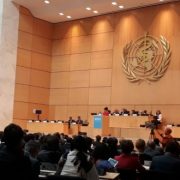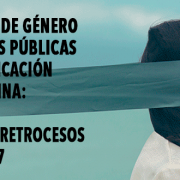Business activity and women’s rights in the United Nations agenda
We participated in the call of the Working Group on the Gender Perspective in the United Nations Guiding Principles on Business and Human Rights, in order to comment from our experience on the relationship between business activities and women’s rights.
“Below, we offer a google translate version of the original article in Spanish. This translation may not be accurate but serves as a general presentation of the article. For more accurate information, please switch to the Spanish version of the website. In addition, feel free to directly contact in English the person mentioned at the bottom of this article with regards to this topic”.
The Working Group on the issue of human rights and transnational corporations and other companies, operating within the framework of the United Nations, made a call for civil society organizations to send their comments on the relevant issues regarding impact. of business activity in the human rights of women. For this, we elaborate comments from the point of view of our work agendas, to comment on the situation of health impacts, on the participation of women in companies, and on women and the media.
First, we address how women experience the impact of human rights abuses related to companies differently and disproportionate, exposing the cases of the tobacco industry and breast milk substitutes. Both industries, with their particularities, have aggressive marketing strategies. The tobacco industry especially targets young women in cigarette consumption through strategies such as flavored cigarettes or “light” or sponsorship of fashion events. On the side of the breast-milk substitution industry, they also operate with misleading marketing and labeling strategies on the characteristics of the products, as well as having great interference in public policies – in a situation of conflict of interest – discouraging breastfeeding. maternal and its replacement by the formula from an early age.
On the other hand, financing for development provided by international financial institutions to the private sector also has environmental, social, health, access to infrastructure and housing, and indigenous rights, which affect women in particular. The IFIs in general have difficulties and failures in the implementation of their policies, and particularly in the design and application of gender policies. We emphasize then that policies in general, and particularly those on gender, should be strengthened so that they establish clear guidelines for clients (especially companies and other private entities) to apply differentiated impact assessments, and also strengthen accountability mechanisms to give effective remedies when there are negative impacts.











